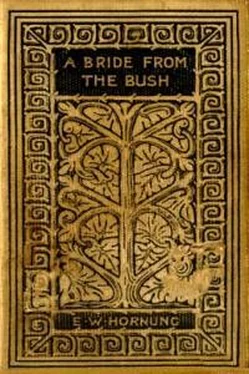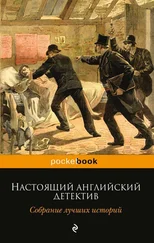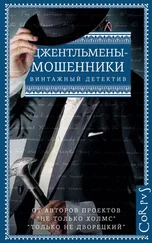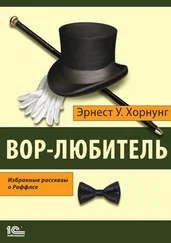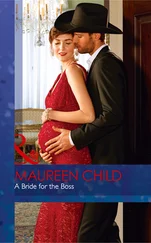Lady Bligh would not have given garden–parties at all, could she have been "at home" in any other way; but as her set was largely composed of people living actually in town, who would not readily come ten miles out for a dinner–party, still less for an after–dinner party, she had really no choice in the matter. Still, Lady Bligh's garden–parties were not such very dull affairs after all. They were immensely above the suburban average. To the young and the curious they held out attractions infinitely greater than garden–party lawn–tennis, though these could not be advertised on the cards of invitation. For instance, you were sure of seeing a celebrity or two, if not even the highest dignitaries, with some of the dignity in their pockets. And it is inexpressible how delightful it was to come across a group of Her Majesty's Judges gorging strawberry ices unblushingly in a quiet corner of the marquee. On the present occasion, when the stoutest and most pompous Q.C. at the Bar—Mr. Merivale—sat down on the slenderest chair in the garden, and thence, suddenly, upon the grass, the situation was full of charm for Granville and some of his friends, who vied with one another in a right and proper eagerness to help the great man to his feet. Even Gladys (who was so very far from being in a laughing mood) laughed at this; though she was not aware that the stout gentleman was a Q.C., nor of the significance of those initials, had any one told her so.
But this was all the entertainment that Gladys extracted from the long afternoon. She was amused, at the moment, in spite of herself; she was not amused a second time. She kept ingeniously in the background. Alfred was attentive to her, of course, but not foolishly attentive, this afternoon. And Granville introduced to her one of his clean–shaven friends, whom Gladys conversed with for perhaps a minute. She was also presented by the Judge—in his recent genial, fatherly manner—to one or two of his colleagues. Plainly, the disgraceful scene in Hyde Park had not yet reached Sir James's ears. But that scandal was being discreetly discussed by not a few of the guests. Gladys suspected as much, though she did not know it. She imagined herself to be a not unlikely subject of conversation in any case, but quite a tempting one in the light of her last escapade. But this idea did not worry her. In some moods it is possible to be acutely self–conscious without being the least sensitive; Gladys's present mood was one. More often than at the people, she gazed at the window of her own room, and longed to be up there, alone. She neither took any interest in what was going on around her, nor cared what the people were whispering concerning her. No doubt they were whispering, but what did it matter? Misery is impervious to scorn and ridicule and contempt. These things wound the vanity; misery deadens it. Gladys was miserable.
Among the later arrivals was Miss Travers. Her father could not come: he was doing the fair thing by the Party and his constituents: it was his first term. Miss Travers came alone, and intended to go back alone, the later the better. Whitechapel had made her fearless and independent. She rather hoped to be asked to stop to dinner: some people were certain to stay, for the Blighs were uncommonly hospitable, and in many things quite unconventional; and Miss Travers intended to be one of those people, if she got the opportunity. She also intended to cultivate the most original specimen of her sex that she had ever yet met with; and for this she tried to make the opportunity.
But the most original of her sex was also one of the most slippery, when she liked; she dodged Miss Travers most cleverly, until the pursuer was herself pursued, and captured. Her captor was a rising solicitor, a desirable gentleman and an open admirer; but he did not improve his chances by that interview. Miss Travers was disappointed, almost annoyed. The unlucky lawyer sought to make her smile with a story: the story of the " coo–ee! " as he had heard it. He knew Miss Travers intimately; her appreciation of humour was vast, for a woman; he felt sure she would be tickled. But, unfortunately, the version he had heard was already fearfully exaggerated, and, as Miss Travers drew him on gently, yet without smiling as he wished her to, the good fellow improvised circumstances still more aggravating and scandalous; and then—sweet Miss Travers annihilated him in a breath.
"I was in their carriage at the time, myself; but—you will excuse my saying so—I shouldn't have recognised the incident from your description!"
It was a staggerer; but Miss Travers did not follow up the blow. She reproved him, it is true, but so kindly, and with such evident solicitude for his moral state, that the wretch was in ecstasies in two minutes.
"At all events," he said, with enthusiasm, "she has you for her champion! I won't hear another word about her; I'll champion her too!"
"If you spoke to her for one moment," Miss Travers replied, "you would own yourself that she is charming. You never saw such eyes!"
This the lawyer seemed to question, by the rapt manner in which he gazed into Miss Travers's own eyes; but the speech was the prettier for being left unspoken; and here the lawyer showed some self–restraint and more wisdom. But immediately the lady left him: she had descried her quarry.
Gladys dodged again, and, passing quickly through the tent, heard two words that sent the blood to her cheeks. The words were in close conjunction—" coo–ee! " and "disgrace." Without turning to see who had uttered them—the voice was unfamiliar—she hurried through into the house, and finding the little morning–room quite empty, went in there to sit down and think.
She was not wounded by the chance words; her lifeless pride had not quickened and become vulnerable all in a moment—it was not that. But it was this: what she had done, she realised now, for the first time, fully. Disgrace! She had disgraced Lady Bligh, Sir James, Alfred, Granville, all of them; in a public place, she, the interloper in the family, had brought down disgrace upon them all. Disgrace!—that was what people were saying. Disgrace to the Blighs—that was why she minded what the people said. And she minded this so much, now, that she rocked herself to and fro where she sat, and wrung her large strong hands, and groaned aloud.
And it was not only once; she had disgraced them many times. And all had been forgiven. But this could never be forgiven.
If only she had never married poor Alfred; if only she had never come among his family, to behave worse than their very servants! The servants? Would Bella Bunn have behaved so in her place? It was not likely, for even Bella had been able to give her hints, and she had consulted Bella upon points on which she would have been ashamed to confess her ignorance, even to Alfred. But, in spite of all their goodness and patience, she had brought only unhappiness to them all; there could be no more happiness for them or for her while she remained in the family.
"I ought to be dead—or back in the Bush!" she cried again, in her heart. "Oh, if only one was as easy as the other!"
These were her sole longings. Of the two, one was strong and not new (being intensified, not produced, by the circumstances), but sufficiently impracticable. The other was easy to compass, easy to the point of temptation, but as yet not nearly so strong, being entirely the impulse of events. But neither longing was at present anything more than a longing; no purpose showed through either yet. The reality of Alfred's love, the feeling that it would kill him to lose her, was accountable for this. Gladys's resolution was, so far, a blank tablet, not because purpose was absent, but because it was not yet become visible.
A rough analogy may be borrowed from the sensitive film used for the production of a photographic negative. The impression is taken, yet the film remains blank as it was before, until the proper acid is applied, when the impression becomes visible.
Читать дальше
